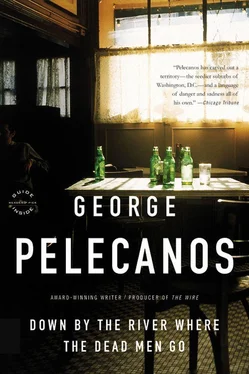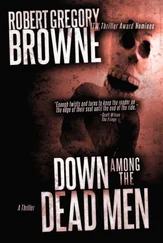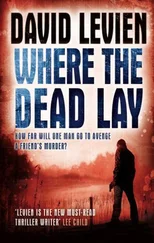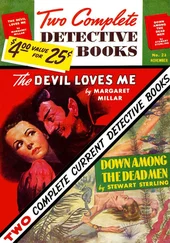George Pelecanos - Down By the River Where the Dead Men Go
Здесь есть возможность читать онлайн «George Pelecanos - Down By the River Where the Dead Men Go» весь текст электронной книги совершенно бесплатно (целиком полную версию без сокращений). В некоторых случаях можно слушать аудио, скачать через торрент в формате fb2 и присутствует краткое содержание. Жанр: Криминальный детектив, на английском языке. Описание произведения, (предисловие) а так же отзывы посетителей доступны на портале библиотеки ЛибКат.
- Название:Down By the River Where the Dead Men Go
- Автор:
- Жанр:
- Год:неизвестен
- ISBN:нет данных
- Рейтинг книги:5 / 5. Голосов: 1
-
Избранное:Добавить в избранное
- Отзывы:
-
Ваша оценка:
- 100
- 1
- 2
- 3
- 4
- 5
Down By the River Where the Dead Men Go: краткое содержание, описание и аннотация
Предлагаем к чтению аннотацию, описание, краткое содержание или предисловие (зависит от того, что написал сам автор книги «Down By the River Where the Dead Men Go»). Если вы не нашли необходимую информацию о книге — напишите в комментариях, мы постараемся отыскать её.
Down By the River Where the Dead Men Go — читать онлайн бесплатно полную книгу (весь текст) целиком
Ниже представлен текст книги, разбитый по страницам. Система сохранения места последней прочитанной страницы, позволяет с удобством читать онлайн бесплатно книгу «Down By the River Where the Dead Men Go», без необходимости каждый раз заново искать на чём Вы остановились. Поставьте закладку, и сможете в любой момент перейти на страницу, на которой закончили чтение.
Интервал:
Закладка:
I stopped at Slim’s, near Colorado Avenue, for a beer, drank it while I listened to some recorded jazz, then hit the Good Times Lunch on Georgia for an early dinner. Kim, my Korean friend who owned the place, put a can of beer on the counter when I walked in, then went off to fix me a platter of fried cod and greens and potatoes. I took the beer to a pay phone near the front register, stood beneath a malt-liquor poster featuring a washed-up black actor embracing a light-skinned woman with Caucasian features, and dialed the number once again to the Lewis residence.
This time, the mother of Roland Lewis answered the phone. She had just gotten in from work and had found my card in the pile of mail inside her door. Her tone was cool, even, and clear. I explained to her that I needed to speak with her son, adding for the third time that day that I was “with” the police on the Calvin Jeter case. I listened to my own voice, caught the slur in it from the alcohol and the pot, wished then that I had waited to straighten up before I called. But after a moment or two, she agreed to meet me, and I set something up for the next day at her place of business, on M Street in the West End.
I returned to my stool at the counter and ate my food. A man came into the restaurant and ordered a beer, talked to himself as he drank it. I pushed the empty plate of food away and smoked a cigarette while I watched rush hour dissipate through the plate-glass window of the Good Times Lunch. I butted the smoke and went to the register to get my check from Kim.
“Any trouble down this way lately?” I asked as he ripped a green sheet of paper off a pad. There had been two gun deaths, merchant robberies on the strip, in the last six months.
Kim produced a snub-nosed. 38 from somewhere under the counter. He waved it briefly, then replaced it as quickly as he had drawn it. Kim blinked, wiped a forearm hard as pine across his brow.
“Take care,” I said. I went back down to my spot, left ten on seven, and walked out under the damp veil of dusk.
When I got back to my apartment, I fed the cat and phoned Lyla. Her recorded message told me that she had gone out for happy hour with a friend and that she’d check the machine later that night. I left my own message, asking her to come by, adding, “I could use some company.”
But Lyla did not call back or drop in on me. I ended the night sitting on a bench in the back of my yard, another beer in my hand, listening to theer ening t crickets sounding out against the flat whir of air conditioners from the win dows of the neighboring houses. My cat slinked out from the darkness and brushed against my ankles. I scratched behind her ears. After awhile, I walked back inside and fell to alcohol sleep.
FIVE
The police report had the only potential witness to the Jeter murder as a black male, mid-forties, average height and build, with no distinguishing characteristics, a typically blank cross-racial description. It wasn’t much to go on, not anything at all, in fact, but the boatyard worker had mentioned that the man wore a brilliant blue winter coat year round. Everyone concerned had accepted the worker’s opinion that the man who sat singing under the bridge every morning at dawn was crazy. Crazy, maybe, but not necessarily stupid. If he knew that he had witnessed a killing and understood the implications, then he had probably disposed of the coat by now, or, at the very least, quit wearing it. I was reminded of the time when, as kids, my friends and I had stood on a hill and thrown hard-packed snowballs at cars driving south on 16th Street. One of my buddies had winged a smoker that shattered the side window of a green Rambler Ambassador, bloodying the driver’s lip. We all scat tered and ran; the cops nailed me at the end of a nearby alley, identified me by my neon orange knit cap, which I had neglected to remove from my head. The hat had been the only thing the driver had remembered from his brief look at us on the hill. I figured that nobody, even a straitjacket candidate, is as mindless as a kid who is running from the cops for the first time. But I hoped that I was wrong.
So the next morning, I woke up in the dark and headed downtown and into Southeast, down M Street to the waterline, in search of the man in the brilliant blue coat. By the time I got there, the sky had lightened and a line of orange had broken the green plane of Anacostia Park across the river. A blue-and-white sat parked beneath the Sousa Bridge, with two uniforms in the front seat. They noted me without incident as I went by. I turned the car around at the end of the road and passed them again on my way back out. No man sat singing or reading on the concrete pilings beneath the bridge, blue coat or otherwise. I moved on.
I drove all the way across town, bought a go-cup of coffee at a market on Wisconsin and P in Georgetown, then went up to R and parked near Dumbarton Oaks. I walked through open grounds, down into the woods of Rock Creek Park, and found my seat on a large gray rock at the crest of a winding bridle trail overlooking the creek and Beach Drive. I watched the cars and their occupants, making their morning rush to wherever it is that people who wear ties and business suits go, and I listened to the serpentine creek running to the Georgetown Channel and the songbirds in the trees above. Everyone has their own spot in their hometown, and this was mine.
Afterward, I walked to the iron fence surrounding Oak Hill, wrapped my hands around the rungs, and admired the most beautiful cemetery grounds in D.C. Privileged people lead privileged lives, and even find privileged places to rest. I wondered idly about the final whereabouts of Calvin Jeter’s body. Then for a while I thought of nothing earthbound at all. I noticed an old man in a physical-plant uniform sitting atop a small tractor in the cemetery, ant. ld for a moment our eyes met. Then he looked away, and we both went back to what we had been doing for the last half hour: trying to find a kernel of spirituality before returning to the cold reality of our day.
I spent that morning reading local history in the Washingtoniana room of the Martin Luther King Memorial Library, then walked into Chinatown and met Lyla for lunch at a nondescript restaurant packed with locals at the corner of 7th and H. I crossed the dining room with a bag in my hand and had a seat next to Lyla.
“Hey,” I said, kissing her mouth.
“Hey, you.” She looked me over. “Why so sporty?”
I wore an open-necked denim, sleeves up, and a pair of khakis, with monk-straps on my feet. “You think this is sporty?”
“Well, you ran an iron over the shirt.”
“Just for you, baby. And, I’m meeting a woman this afternoon.”
“What, I’m not a woman?”
“Sweetheart, you’re all woman. But I’m talking about a business appointment. Over at Ardwick, Morris and Baker, in the West End.”
“That’s the firm that defended those S and L boys.”
“I don’t know anything about that. I’m meeting one of their secretaries.”
“Uh-huh.” She smiled maternally. “You’re poking around on the Jeter murder, aren’t you? I can see it on you, Nick. The only time you get wired during the daylight like this is when you’re juiced on some kind of case. Am I right?”
“I’m asking around, that’s all. Maybe I’ll kick something up.”
“Yeah,” she said.
Our waitress, an angular woman with coal black hair and bad teeth, arrived at the table. I ordered steamed dumplings with a main of squid sauteed in garlic, and Lyla ordered the special, asking only if it contained chicken. We avoided anything in the way of chicken here, as several of them hung plucked in the midday heat of the window. Lyla asked for white wine, and I took ice water.
“What do you suppose is in the special?” Lyla said.
Читать дальшеИнтервал:
Закладка:
Похожие книги на «Down By the River Where the Dead Men Go»
Представляем Вашему вниманию похожие книги на «Down By the River Where the Dead Men Go» списком для выбора. Мы отобрали схожую по названию и смыслу литературу в надежде предоставить читателям больше вариантов отыскать новые, интересные, ещё непрочитанные произведения.
Обсуждение, отзывы о книге «Down By the River Where the Dead Men Go» и просто собственные мнения читателей. Оставьте ваши комментарии, напишите, что Вы думаете о произведении, его смысле или главных героях. Укажите что конкретно понравилось, а что нет, и почему Вы так считаете.












